Class society DNV has unveiled the sixth edition of its Maritime Forecast to 2050 report with a new focus on how to overcome the “ultimate hurdle” of fuel availability. “No industry can decarbonize in isolation so global industries need to make the right choices together, and sustainable energy should be directed to where it has the biggest impact on reducing GHG emissions. The ultimate hurdle is fuel availability; to overcome it, supply chains must be built through cross-industry alliances,” said DNV Maritime CEO Knut Ørbeck-Nilssen.
In terms of fuel choice, the authors of the DNV report wrote that uncertainties around future price and availability mean that a clear winner among the many options – ammonia, methanol, diesel, or methane, produced from sustainable biomass, renewable electricity, or fossil fuels with carbon capture and storage – cannot be identified yet or shortly.
The fuel transition has already started, with 5.5% of ships in gross tonnage terms in operation and 33% of gross tonnage on order today able to operate on alternative fuel, largely dominated by LNG. DNV forecasts that onboard technology investments required for the decarbonization by 2050 pathway scenarios will range from $8bn to $28bn per year depending on which fuel type has the largest uptake between 2022 and 2050. The largest investments come in scenarios with high uptake of ammonia or methanol, which require more expensive fuel systems, according to DNV analysis.
Alliances for Decarbonization
Shell, MSC, and LR are among the backers of an initiative to tackle methane slip: A new initiative aimed at accelerating the implementation of methane emission monitoring and reduction technologies in the maritime sector is being launched by seven shipping and energy companies.
The Methane Abatement in Maritime (MAM) Innovation Initiative seeks to minimize the environmental impact of liquefied natural gas (LNG) in shipping, whilst aiding the transition to future fuel solutions. Forecasts indicate that over two-thirds of new ships will be powered by LNG by 2025, while, since 2010, the number of vessels fuelled by LNG has grown consistently by 20-40% a year, it is claimed. Compared to traditional marine fuels, LNG is understood to generate less carbon dioxide (CO2), and emit fewer nitrogen oxides (NOx), sulfur dioxide (SOx), and particulate matter (PM), for the equivalent propulsion power. Given the adverse impact of fossil fuels on shipping's reputation, the development of hydrogen-based power generation and engine technologies is also gaining industry momentum.
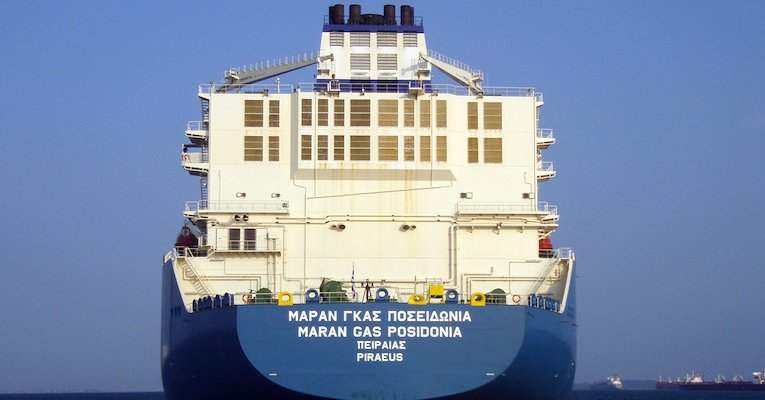
Chariot and Total Eren to work on a green hydrogen project in Mauritania: The two companies formed a consortium for this purpose; an equally owned partnership between Chariot and Total Eren. According to the companies, the consortium will benefit from the dedicated expertise of Total Eren's teams, with a wide range of experience and knowledge in global solar, wind, hybrid, and green hydrogen projects. Chariot will co-lead on project development and permitting, local content, and stakeholder engagement.
The consortium will seek to progress on the in-depth feasibility study and offtake for the green hydrogen. Chariot and Total Eren may evaluate further green hydrogen opportunities together in other African countries.
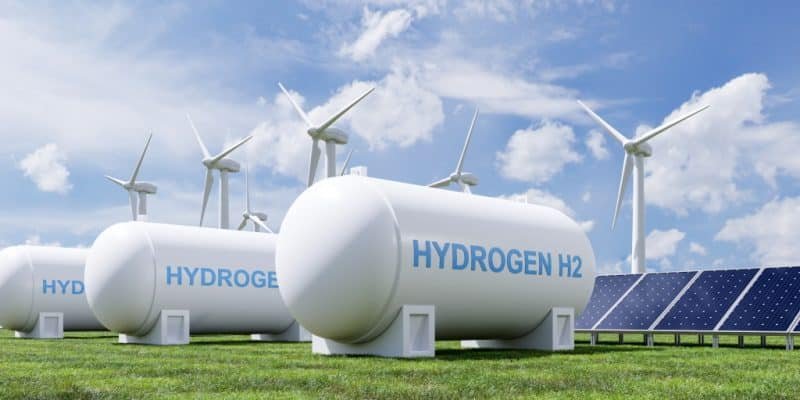
ESB and dCarbonX to work on green hydrogen storage in Ireland: Since 2021, ESB and dCarbonX, (an affiliate of Snam), have been working together in terms of the assessment and development of Irish offshore green hydrogen subsurface storage. ESB and dCarbonX believe there is significant potential to develop large-scale storage capacity off the Irish coast. The companies intend to actively explore and develop opportunities. The joint venture will focus on three specific green hydrogen storage opportunities based on decarbonization clusters: East of Dublin's Poolbeg; West of ESB's Green Atlantic at Moneypoint project supporting the Shannon Estuary cluster; South of Aghada in Cork (Project Kestrel).
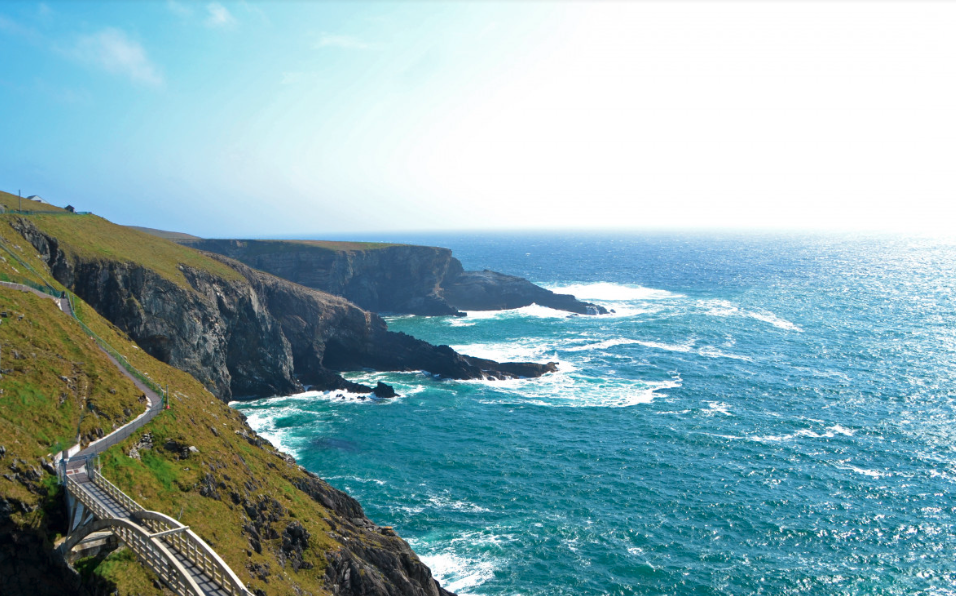
Battery manufacturer and propulsion specialist join forces in a bid to electrify shipping: Canadian battery producer Shift Clean Energy (Shift) has joined forces with Norwegian propulsion system developer STADT in a bid to electrify global shipping. According to a recent report, penned by three scientists from Berkeley in California, the electrification of container vessels is more economical on voyages of up to 5,000 km and three to five times more efficient than e-fuels such as green hydrogen and ammonia.
Over 40% of global containership traffic could be electrified cost-effectively with current technology. Critics regularly highlight the explosive dangers of batteries. This is something that is being addressed too. Synergy Marine, a subsidiary of Singapore's Synergy Group, has partnered up recently with US-based battery developer Alsym Energy and Japanese owner Nissen Kaiun to roll out non-flammable rechargeable batteries for the shipping sector.
Industry Actions
CMA CGM creates $1.5 billion fund to speed up shipping decarbonization: French shipping major CMA CGM has decided to create a Special Fund for Energies, backed by a five-year $1.5 billion budget, to accelerate its energy transition and achieve net-zero carbon by 2050. The fund will invest to support the industrial production of new fuels and low-emission mobility solutions across the company's business base, including maritime, overland, and air freight shipping, port and logistics services, and offices.
It will also help to support a global innovation platform developed alongside large corporations, SMEs, start-ups, and the academic and scientific community. Starting in October 2022, the $1.5 billion fund is structured around four lines of focus to invest in projects securing the supply of renewable energies and exploring new solutions to meet CMA CGM’s decarbonization targets. First focus: Supporting the development and production of renewable fuels. Second focus: Accelerating the decarbonization of port terminals, warehouses, and truck fleets. Third focus: Supporting, trialing, and launching projects at the cutting edge of innovation. Fourth focus: Pursuing energy savings and improving the energy efficiency of CMA CGM employee working methods and daily mobility.
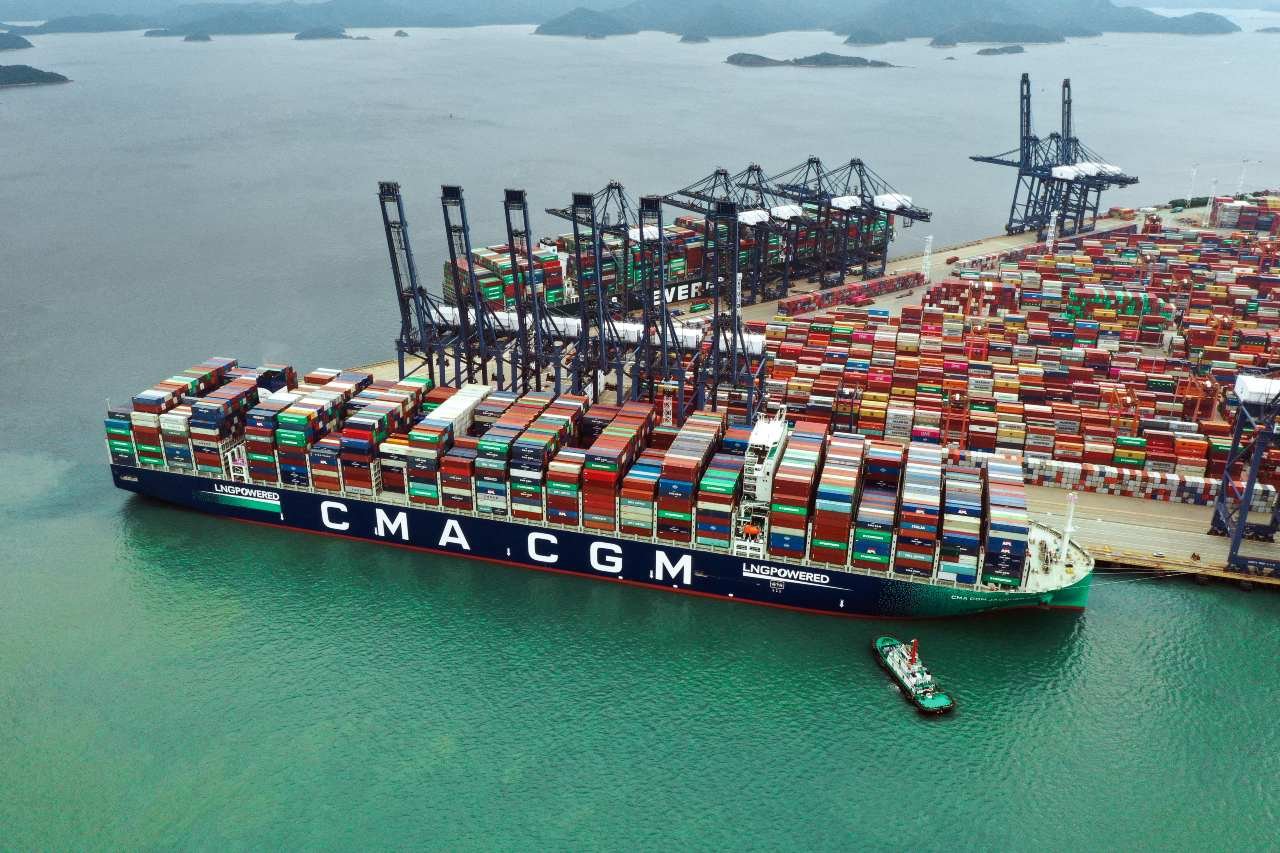 Bahri aims to enhance operations with a fleet performance monitoring center:
Bahri aims to enhance operations with a fleet performance monitoring center: Saudi Arabian logistics and shipping company Bahri has launched the first phase of its Fleet Performance Monitoring Center (FPMC), set to enhance operations in the areas of speed and consumption, energy efficiency, and hull performance. Bahri aims to develop it into a centralized support system that provides data and analytics-driven guidance which will be used for decision-making regarding technical, safety, and crew options.
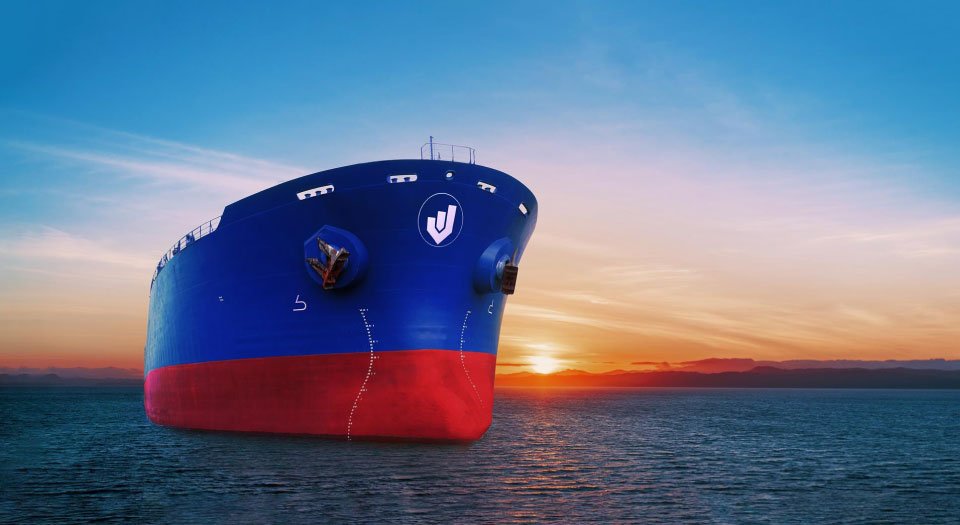 ADNOC sends the first low-carbon ammonia cargo to Germany:
ADNOC sends the first low-carbon ammonia cargo to Germany: Abu Dhabi National Oil Company (ADNOC) has sent out the first shipment of low-carbon ammonia from the United Arab Emirates to Hamburg, Germany. ADNOC said this is the first-ever cargo of low-carbon ammonia to be shipped to Germany. The demonstration cargo will be delivered to Aurubis, a global provider of non-ferrous metal. On arrival in Germany, Hamburger Hafen und Logistik (HHLA), one of Europe's logistics companies will handle the cargo. The cargo is produced by Fertiglobe, a partnership between ADNOC and OCI, at its Fertil plant in Abu Dhabi's Ruwais industrial complex.
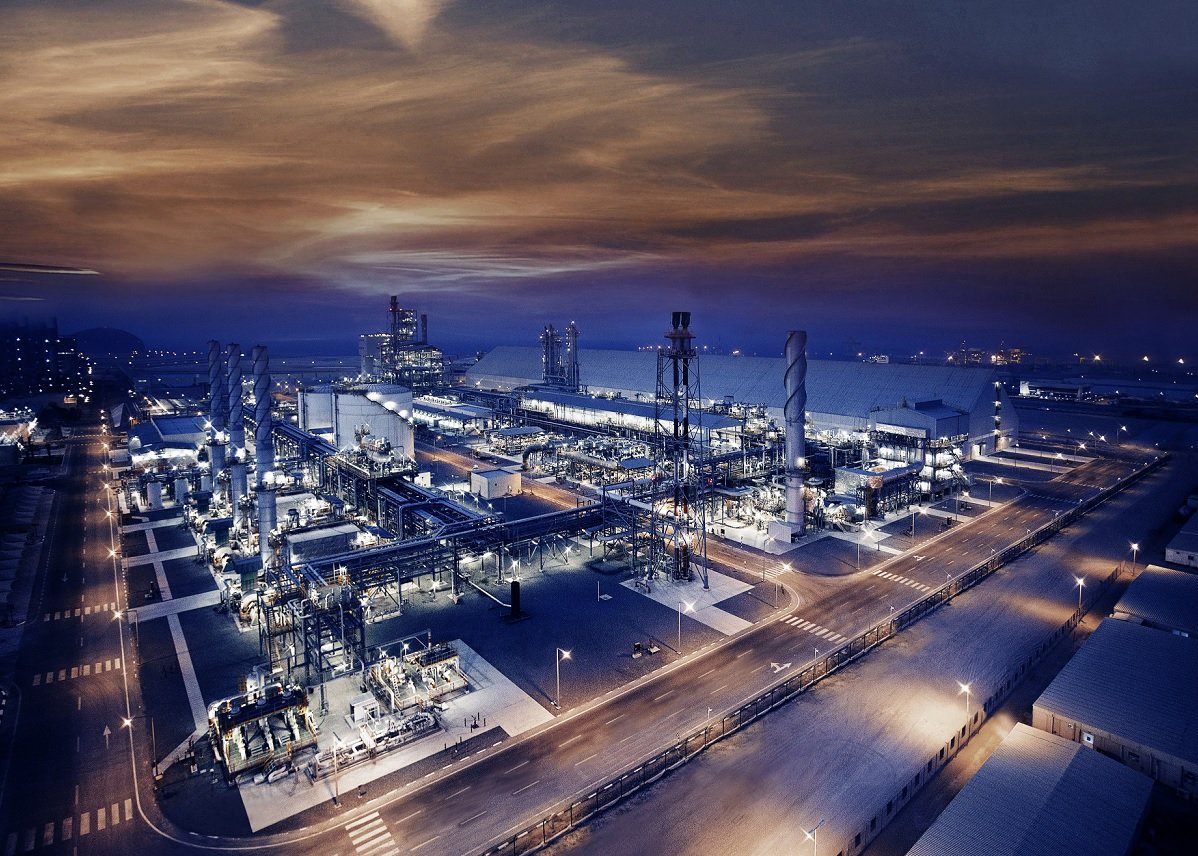
K Line kicks off decarbonization research with Indian steel producer: Japanese shipping company Kawasaki Kisen Kaisha (K Line) has signed a memorandum of understanding (MoU) with Indian steel producer JSW Steel for establishing the working committee for collaborative research on decarbonization. The companies agreed to share research and ideas on their respective knowledge about new marine technologies, alternative fuels, and other fields potentially growing soon with the ultimate goal to achieve net-zero greenhouse gas (GHG) emissions in marine transportation by 2050. K Line and its affiliated company K Line (India) Shipping (KISP) have been engaging in the seaborne transportation of raw materials for JSW Steel since 2006 and 2014, respectively.
Classification Society
LR partners with The Alan Turing Institute to advance maritime digitalization: Classification society Lloyd's Register (LR) has teamed up with The Alan Turing Institute, UK's national institute for data science and AI, to advance maritime digitalization. The parties will collaborate to provide companies adopting digital technology with a fast and cost-effective independent assurance and testing service provider, using each other's resources and expertise. The cooperation is expected to lay the groundwork for delivering more assurance of AI technology services, allowing for the necessary learning to create the requirements and standards demanded by the industry.
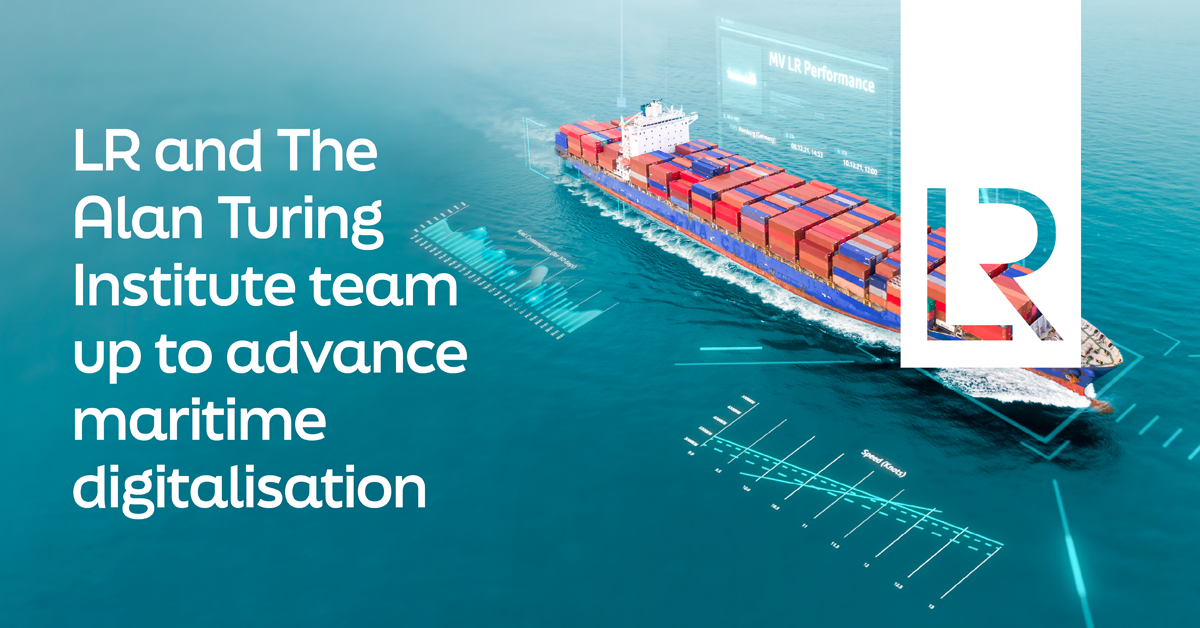
Next Generation of Vessels
LCO2 Carriers
DNV awards AiP to SHI for innovative liquified CO2 carrier design: DNV has awarded an Approval in Principle (AiP) to Samsung Heavy Industries (SHI) for their new liquefied CO2 (LCO2) carrier design. The innovation incorporates customized large cargo tanks (pressurized IMO Type-C) and a reliable cargo handling system with highly efficient reliquefication technology. SHI's new system is expected to help the shipping industry be ready for future large-scale CO2 transportation demands as increasing numbers of carbon capture, utilization & storage (CCUS) projects evolve.
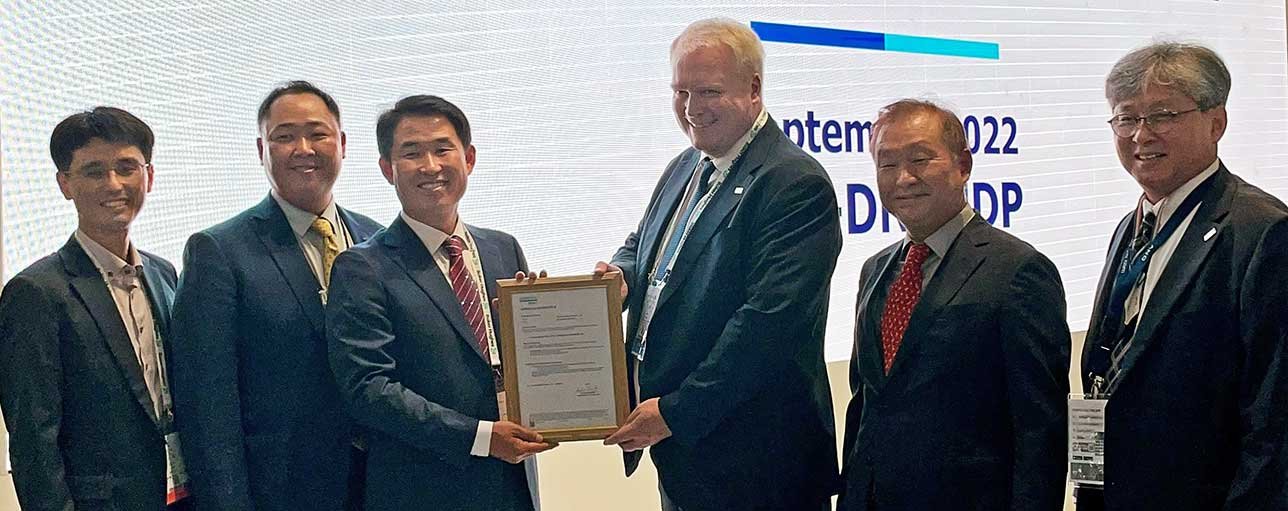
South Korean Shipyards advance designs for LCO2 carriers: The competition continues to develop the designs for the first large-scale liquefied CO2 carriers which will play a critical role in the efforts to transport and store carbon captured by large manufacturers. Using their experience with other gas carriers, the Korean shipyards continue to make progress with both Hyundai Heavy Industries and Samsung Heavy Industries reporting design approvals on their efforts from the major classification societies. Several shipyards have been working to enlarge the size of LCO2 carriers to provide the economic basis for the transportation and storage of LCO2.
Lloyd's Register reviewed the design for HHI's vessel and awarded design approval to the South Korean shipbuilder. LR reports the vessel will be equipped with seven IMO Type C cargo tanks that use an innovative new steel design, that allows tanks to be constructed with lighter scantling whilst remaining structural integrity.
Babcock teams up with Hyundai Heavy, and Hyundai Mipo to develop LCO2 carriers: British engineering services company Babcock has partnered with South Korean shipbuilders Hyundai Heavy Industries (HHI) and Hyundai Mipo Dockyard (HMD) to develop liquefied CO2 carrier designs to service a growing demand for this kind of vessel. As informed, Babcock's LGE business will design the cargo handling system for a range of ship sizes, specifications, cargo purities, and voyage profiles to produce a highly efficient system, which has been optimized to minimize emissions and cargo loss – thereby reducing environmental impact.
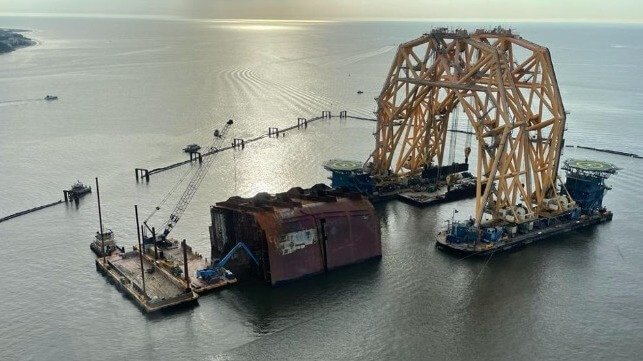
Gas segment
SHI wins green light for an ammonia-ready VLGC design: Samsung Heavy Industries (SHI) has secured approval in principle from the compatriot classification society Korean Register (KR) for the design of an ammonia-fuel-ready very large gas carrier (VLGC). The VLGC will be capable of using ammonia as a fuel as well as carrying it as bulk cargo. The design, jointly developed by SHI and KR, maintains the actual yield stress of the ammonia tank steel below KR’s Rule requirements and can maintain a temperature close to the boiling point. The new design is the largest ammonia-ready vessel to have been approved by KR. The classification society also recently approved designs for a 60,000m3 ammonia-fueled ammonia carrier and a 38,000m3 ammonia carrier/bunkering vessel.
KR, DSME target large-scale LCO2 carrier development, green fuels: Korean Register (KR) and Daewoo Shipbuilding & Marine Engineering (DSME) have joined forces on the development of a 40,000 cbm liquefied carbon dioxide carrier (LCO2) featuring a next-generation cargo handling system. The demand for vessels capable of transporting carbon dioxide at scale from emissions sources to storage sites is expected to surge as carbon capture's role in decarbonizing global industries gains on importance. The cooperation was sealed with an MOU signed at Gastech 2022 in Milan, Italy on 7 September.
NYK and partners obtain ClassNK's approval for ammonia-fueled ammonia gas carrier: Japanese companies Nippon Yusen Kabushiki Kaisha (NYK Line), Japan Engine Corporation, IHI Power Systems Co. Ltd., and Nihon Shipyard have obtained approval in principle (AiP) from classification society ClassNK for their ammonia-fueled ammonia gas carrier (AFAGC). The carrier is currently under research and development by the four companies involved in a demonstration project for the commercialization of vessels equipped with a domestically produced ammonia-fuelled engine. The project was approved by Japan's New Energy and Industrial Technology Development Organization (NEDO) as a part of the Green Innovation Fund.
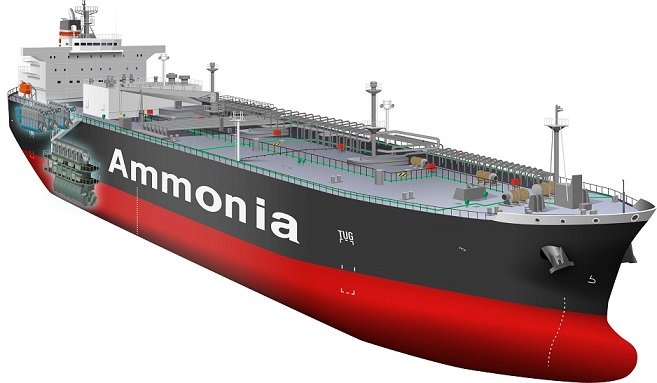
Other
SAL Heavy Lift orders carbon-neutral heavy lift project fleet: SAL Heavy Lift, a Germany-based maritime heavy lift, and project cargo carrier, has signed building contracts for four firms plus two optional new generation heavy lift ships with China’s Wuhu Shipyard. SAL Heavy Lift is working with its joint venture partner, Dutch company Jumbo Shipping, on this joint newbuilding program called Orca Class. Scheduled for delivery starting in mid-year 2024, the first two ships will be exclusively involved in the transportation of offshore wind turbine components in a long-term commitment with Siemens Gamesa Renewable Energy.
Two additional sister vessels will enter the heavy lift shipping market to serve the clients of the Jumbo-SAL-Alliance in the first half of 2025.
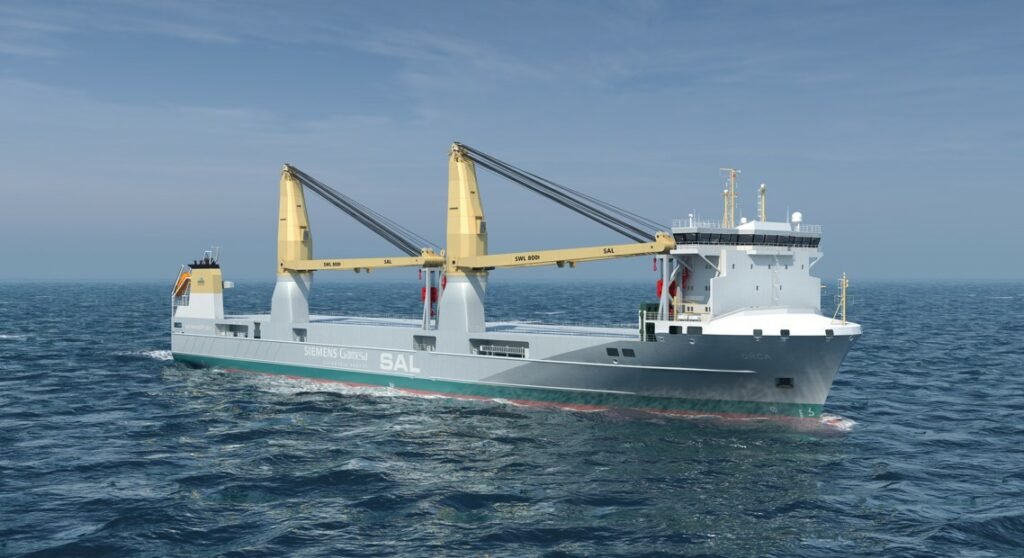 Schulte Group unveils new LNG bunker vessel design:
Schulte Group unveils new LNG bunker vessel design: Germany's ship owner and manager Schulte Group has presented for the first time its next-generation design for a liquefied natural gas (LNG) bunker vessel (LBV) at Gastech Exhibition and Conference in Milan. As explained, the shipping group has used its experience as an LNG bunker vessel owner and operator to develop a new LBV design that fulfills present and known future requirements for at-sea LNG bunker deliveries and reduces last-mile costs.
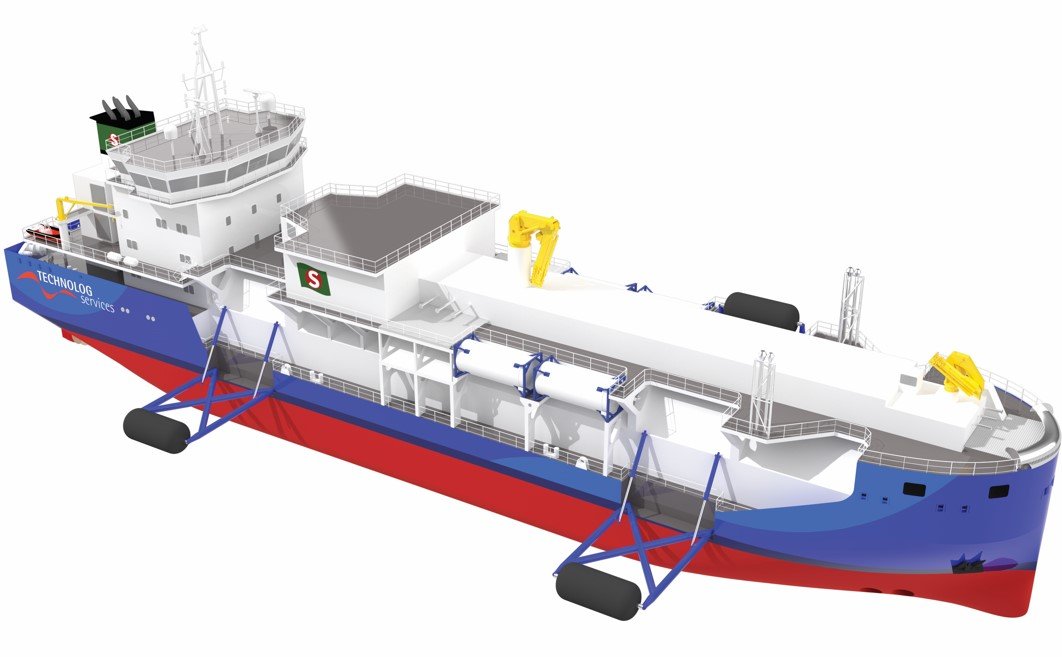
Ferries / Cruise
Scandlines celebrate keel laid for the zero-emission ferry: Scandlines celebrated the keel laying of its new zero-direct emission freight ferry. The ferry will be inserted on the Puttgarden-Rødby route in 2024. It will launch the next generation of ferries on the route. In 2019, Scandlines invested in a 50 kV / 25 MW power cable at Færgevej in Rødbyhavn. In spring 2023, work will start on extending this cable to the ferry berths, where a transformer and charging station will be installed. With a crossing time of 70 minutes, the ferry is emission-free. It can also be operated as a hybrid ferry like the current passenger ferries on the Scandlines routes between Germany and Denmark.
Fincantieri and Viking confirm deal for hydrogen-powered cruise ships: Italian shipbuilder Fincantieri and Swiss cruise line Viking confirmed a contract for four more next-generation environmentally friendly vessels. As informed, the two companies put into effect the contracts for the third and fourth ships that are part of six options announced in March 2018. The duo has also signed the contract for the fifth and sixth units, subject to access to financing as per industry practice. The total value of the agreements is about EUR 1.7 billion ($1.71 billion). Deliveries are scheduled for 2026, 2027, and two in 2028, Fincantieri said.
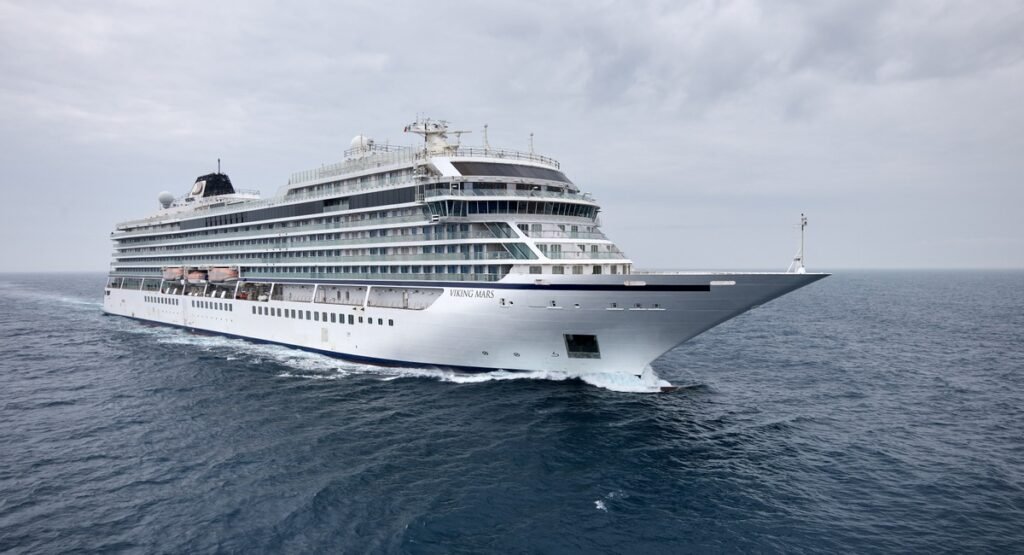
Color Line boosts ships' energy efficiency with Elomatic solution: Norway-based ferry operator Color Line has ordered the Elogrid solution from Finnish engineering and consulting company Elomatic for two of its passenger car ferries to improve their energy efficiency. The two ships in question to be equipped with the Elogrid solution are M/S Superspeed 1 and M/S Superspeed 2 passenger car ferries. Elogrid will be installed in early 2023 during periodical dry docking at the entrance of the bow and aft tunnel thrusters to reduce the vessels' additional resistance. As explained, the Elogrid grid design for thruster openings reduces the additional resistance of vessels. This reduces fuel consumption and carbon dioxide emissions.
Northern Xplorer chooses shipyard for world's 1st zero-emission cruise ship: Northern Xplorer, a recently established Norwegian cruise venture, and Portuguese shipbuilder West Sea have signed a letter of intent (LoI) for the construction of the company's maiden vessel that will sail emissions-free. The ship is expected to be delivered at the start of the 2025/2026 cruise season.
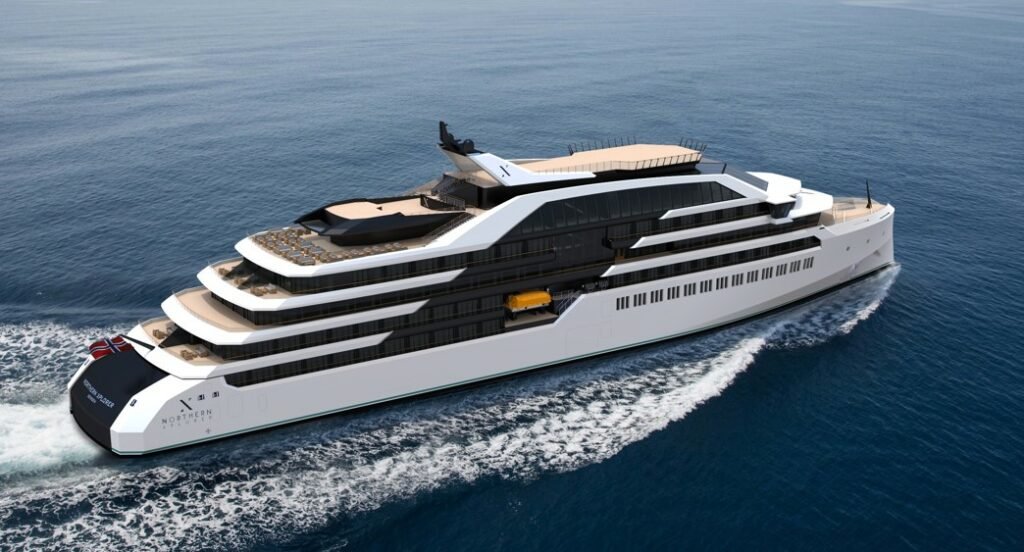
Technology
HHI and partners ink MoU to bring autonomous ship navigation to market: South Korean shipbuilder Hyundai Heavy Industries (HHI), autonomous navigation solutions startup Avikus, classification society Korean Register (KR), and Liberian Registry are collaborating to commercialize autonomous navigation technology. The parties signed a memorandum of understanding (MoU) on 26 August to collaborate on bringing the Hyundai Intelligent Navigation Assistant System (HiNAS 2.0) to market. Under the MoU, the system will be installed on KR classed and LISCR registered ships in July next year.
DNV and DSME join hands to develop a wind-assisted propulsion system: Daewoo Shipbuilding & Marine Engineering (DSME) and DNV have signed a memorandum of understanding (MOU) to establish energy-saving wind assistance propulsion technology. Wind-assisted propulsion will be the focus of a major innovation drive between DSME and DNV as part of shipping's global decarbonization efforts. Gastech 2022 in Milan saw an MOU signing by Dong-Kyu Choi, Executive Vice President, Head of DSME's R&D Institute, and Vidar Dolonen, Regional Manager Korea & Japan at DNV Maritime. Both companies will jointly develop ship wind-assisted propulsion systems, including a rotor sail solution, fuel saving device technology, and will cooperate in promoting future-related businesses.
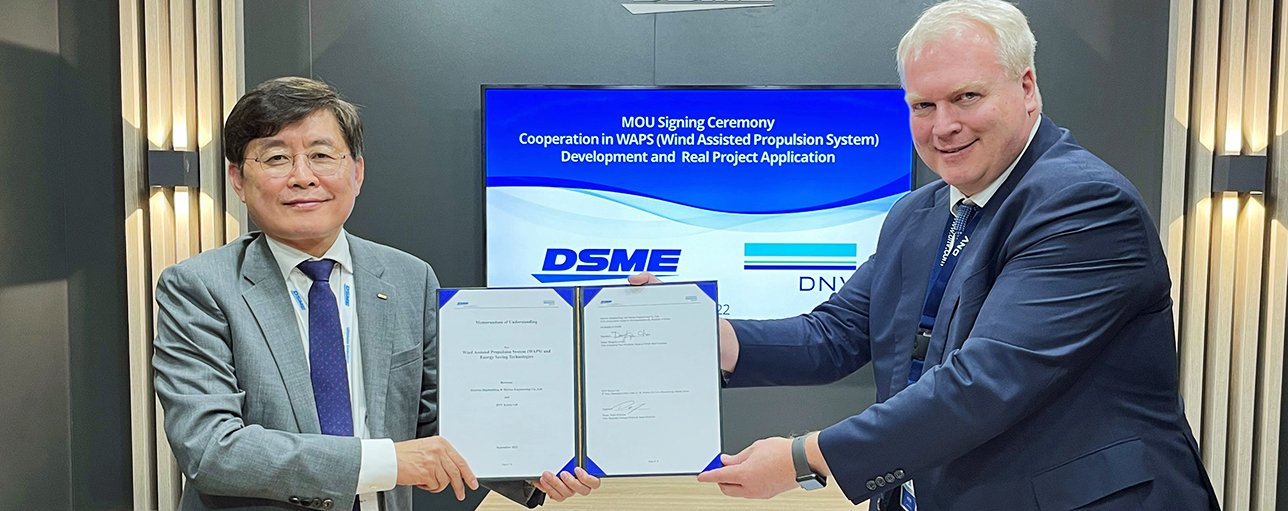 MAN, Wärtsilä roll out new engines targeting decarbonization:
MAN, Wärtsilä roll out new engines targeting decarbonization: German provider of marine engines MAN Energy Solutions has marked the debut of its MAN 49/60DF engine type at the SMM trade fair in Hamburg. The dual-fuel four-stroke engine can run on LNG, diesel, and HFO as well as biofuel blends and synthetic natural gas.
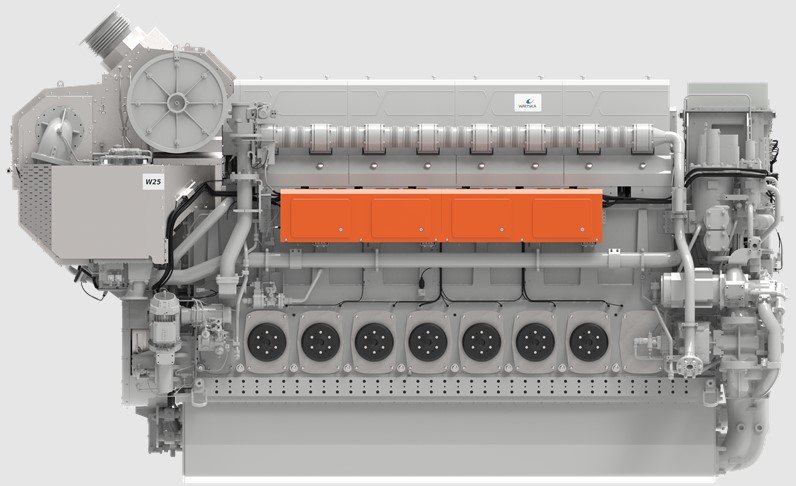 Alfa Laval approved for testing with ammonia:
Alfa Laval approved for testing with ammonia: Swedish sustainable solutions provider Alfa Laval has received approval for testing with ammonia at its Test & Training Centre. The Alfa Laval Test & Training Centre will soon begin testing with ammonia. Just as it has for LNG, biofuels, and methanol, the center wants to deepen the knowledge of ammonia combustion and lead the development of needed onboard technologies. Now, authorities have granted approval for testing with ammonia at the center. When the installation of the testing setup is completed by the end of 2022, it will be able to work with all fuels in consideration as the marine industry decarbonizes.
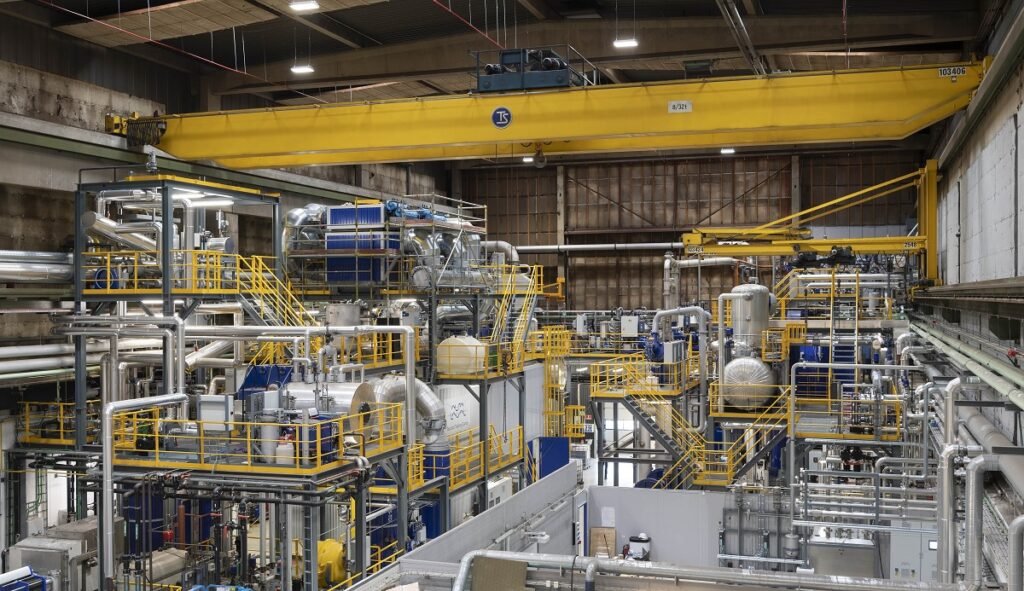
SHI, BASF to study carbon capture onboard ships: South Korean shipbuilding major Samsung Heavy Industries has teamed up with German chemical producer BASF on a collaborative feasibility assessment of capturing CO2 onboard maritime vessels. Under the Memorandum of Understanding for Onboard Carbon Capture and Storage (OCCS) technology, signed at the trade show Gastech 2022 in Milan, Italy, the duo plans to test the use of BASF's OASE® blue technology for flue gas applications. The scope of the collaboration includes a marinization study as well as engineering design and construction of the carbon capture unit.
Fuels
COSCO and China Merchants exploring methanol-fueled ships: Methanol is continuing to gain momentum as a leading option for the shipping industry to address decarbonization. Already adopted by an emerging group of shipping lines, two of China's leading shipping companies are joining the effort focusing on methanol for their future fuel choice.
During a meeting discussing the industry's energy transition, the chairmen of China Merchants and COSCO Shipping Bulk announced that their companies will focus on Methanol marine fuel as their primary area of research in the future. CMES chairman Xie Chunlin and Gu Jinsong, Chairman of COSCO Shipping Bulk made the comments in a meeting held in late August according to the Methanol Institute, during which the two reviewed the cooperation between their companies and exchanged views on the shipping industry's low-carbon transformation.
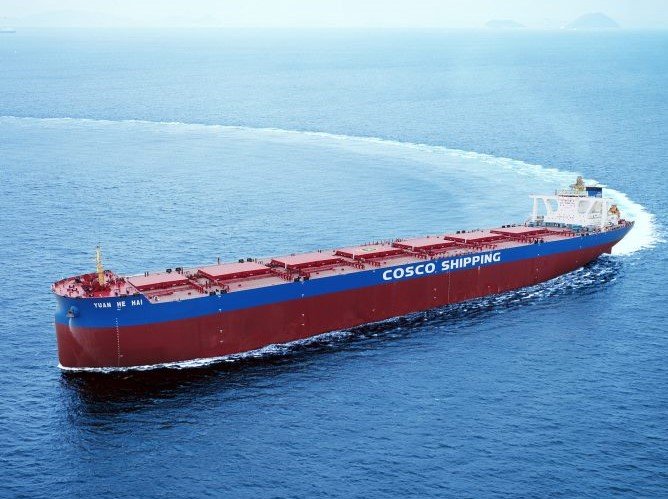
Norwegian companies looking to pair ammonia production vessels with offshore wind farms: Norway's H2Carrier and Statkraft have entered a Memorandum of Understanding regarding a study for the possible use of H2Carrier's green ammonia floating production vessel, the P2XFloater™, on certain offshore wind locations. The P2XFloater™ will utilize renewable power to produce green hydrogen and green ammonia which in turn can be shipped to the international markets, the companies said. H2Carrier recently received an Approval in Principle (AiP) from DNV for the use of the P2XFloater™ for near-shore production.
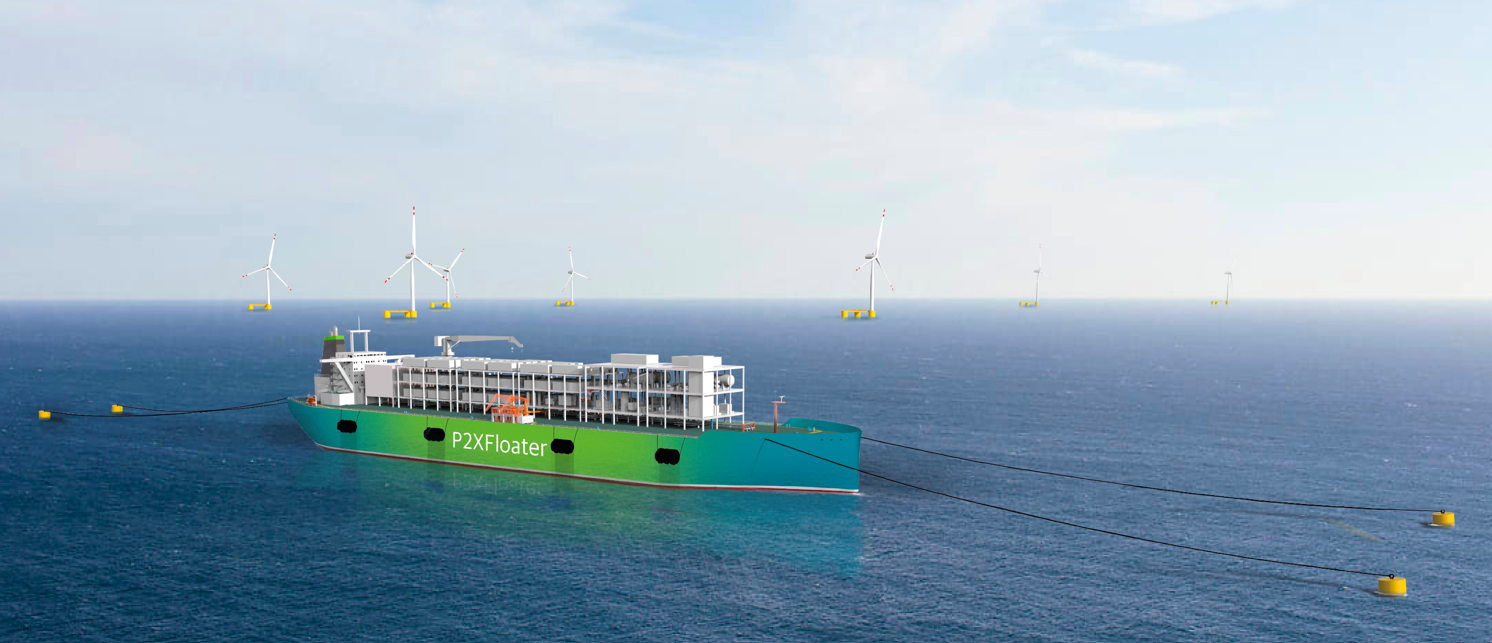 Chevron New Energies and Crowley to fund hydrogen technology company:
Chevron New Energies and Crowley to fund hydrogen technology company: Chevron New Energies, Chevron's unit focussing on low-carbon fuels, and Crowley, US-based shipping and logistics company, will be funding hydrogen technology company Zero Emission Industries (ZEI) after the first close of its Series A funding round. ZEI, formerly Golden Gate Zero Emission Marine, was launched in 2017 and focuses on developing hydrogen solutions for maritime applications. The new funds are expected to enable ZEI to roll out its next-generation fully integrated marine power system and scale quickly to meet the demand within the maritime industry for zero-emission propulsion solutions.
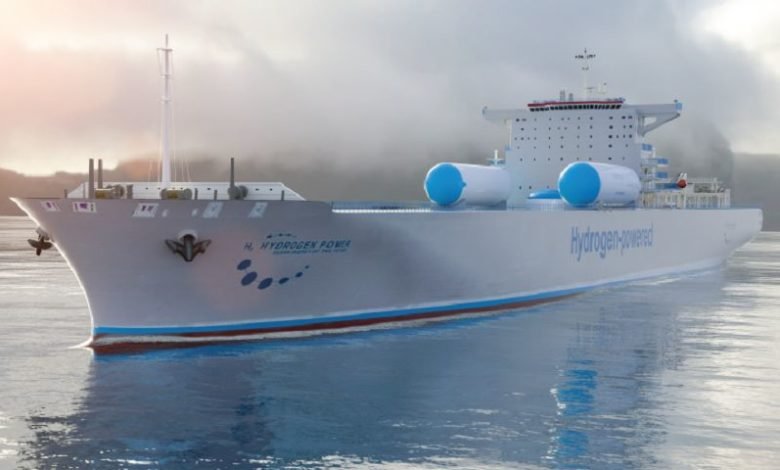
Ports
Gothenburg port sets 2025 date for Europe's first electromethanol hub: Gothenburg Port Authority is collaborating with Stena Line, DFDS, Ørsted, and Liquid Wind to establish Europe's first electromethanol (e-fuels) hub with a planned launch date of 2025. Liquid Wind and Ørsted's emethanol production facility FlagshipONE is in late-stage development and approaching a final investment decision. It will be the largest e-fuels facility in the world, producing 50,000 tonnes of emethanol annually. In April this year, the Gothenburg Port Authority published general methanol operating regulations for ship-to-ship bunkering.
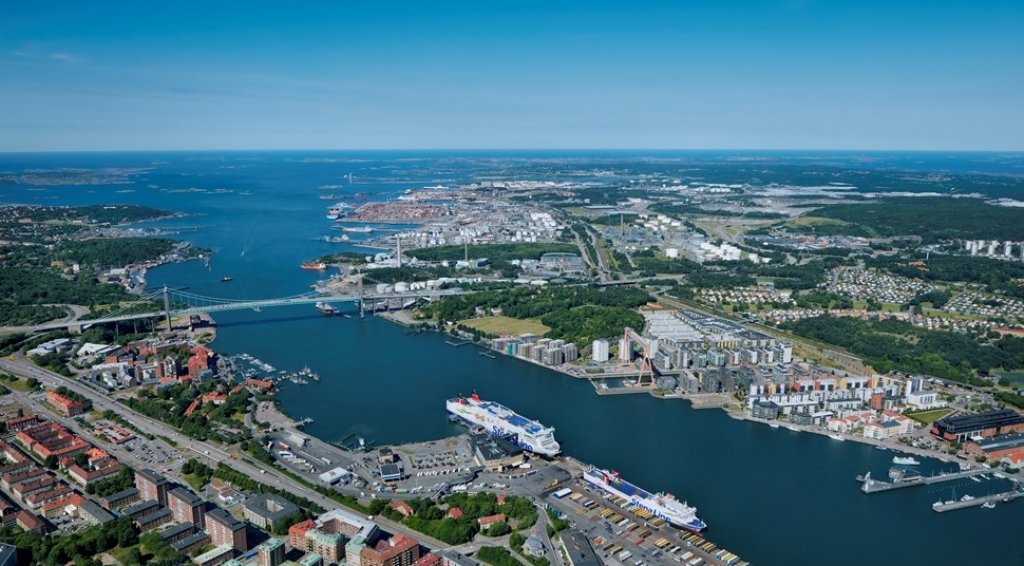
Belgian and German ports forge green hydrogen alliance: Belgian Port of Antwerp-Bruges and German duisport have signed a long-term cooperation agreement in the areas of the energy transition, including hydrogen supply chain, hinterland connections, and infrastructure. The development of solutions for the import, storage, and distribution of green hydrogen in various forms is one of the main strategic pillars of the cooperation between the two ports. The goal is to build an international supply chain for hydrogen in which both partners become central hydrogen hubs for Europe. To achieve this goal, duisport and the Port of Antwerp-Bruges will work to establish a high-frequency rail shuttle in addition to planned pipeline connections and establish rail as a “rolling pipeline”. As both ports aim for climate neutrality by 2050, the development of environmentally friendly port handling equipment is also part of the joint agreement.
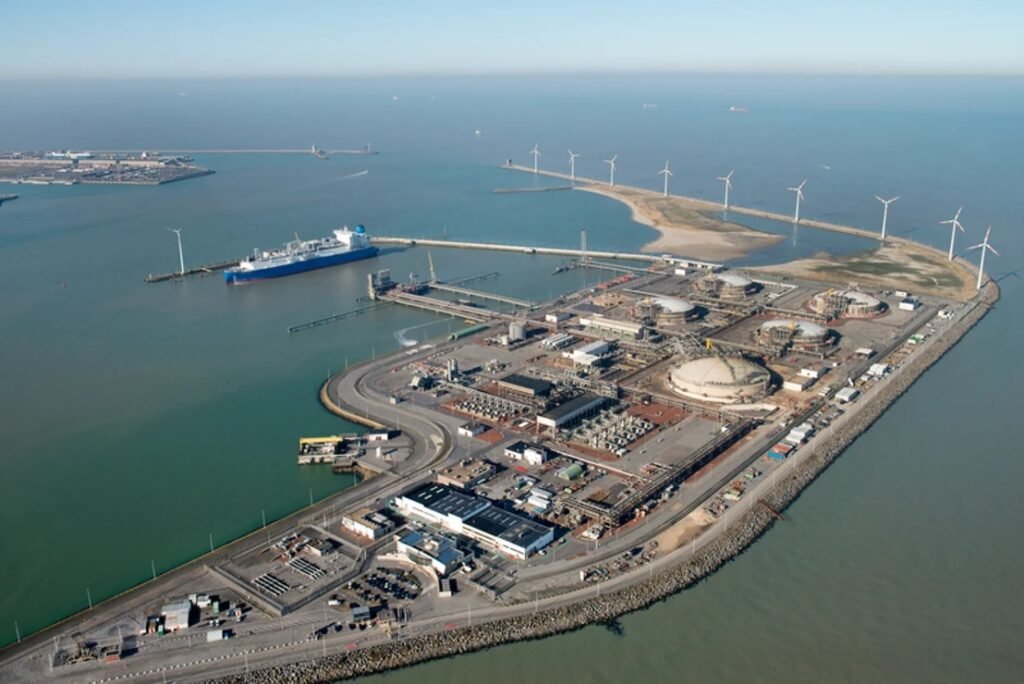
By Maria Bertzeletou, Breakwave Advisors
The opinions expressed herein are the author's and not necessarily those of The Xinde Marine News.
Please Contact Us at:
media@xindemarine.com























 Ningbo Containerized Freight Index Weekly Commentar
Ningbo Containerized Freight Index Weekly Commentar  Ningbo Containerized Freight Index Weekly Commentar
Ningbo Containerized Freight Index Weekly Commentar  Ningbo Containerized Freight Index Weekly Commentar
Ningbo Containerized Freight Index Weekly Commentar  BIMCO Shipping Number of the Week: Bulker newbuildi
BIMCO Shipping Number of the Week: Bulker newbuildi  Ningbo Containerized Freight Index Weekly Commentar
Ningbo Containerized Freight Index Weekly Commentar  Ningbo Containerized Freight Index Weekly Commentar
Ningbo Containerized Freight Index Weekly Commentar